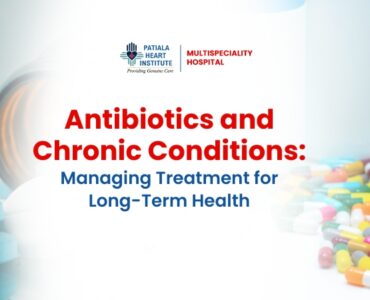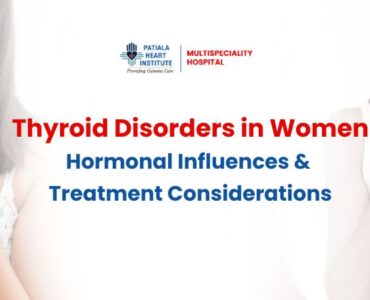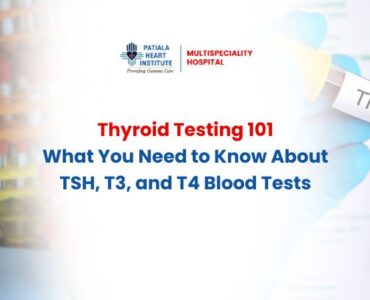Thyroid disease encompasses a range of disorders affecting the thyroid gland, a small, butterfly-shaped organ located at the base of the neck. The thyroid gland regulates various metabolic processes by producing thyroid hormones, primarily thyroxine (T4) and triiodothyronine (T3). It can disrupt the delicate balance of thyroid hormone production and secretion, leading to many thyroid health problems.
Thyroid disorders can manifest in various forms, including hypothyroidism (underactive thyroid), hyperthyroidism (overactive thyroid), thyroid nodules, thyroid cancer, and autoimmune thyroid diseases such as Hashimoto’s thyroiditis and Graves’ disease. These conditions can cause a wide range of symptoms, including fatigue, weight changes, mood disturbances, temperature sensitivity, and changes in heart rate.
Importance of understanding the causes of thyroid disease:
Understanding the causes of thyroid disease is essential for several reasons. Firstly, thyroid disorders are prevalent worldwide, affecting millions of individuals of all ages and genders. Healthcare professionals can better diagnose, manage, and treat thyroid disease by comprehending the underlying factors contributing to thyroid dysfunction. Additionally, gaining insight into the causes of thyroid disease can help identify individuals at risk and implement preventive measures to reduce the incidence and severity of thyroid disorders.
Furthermore, thyroid disease is often associated with significant morbidity and impaired quality of life. By elucidating the mechanisms underlying thyroid dysfunction, researchers can develop novel therapeutic approaches and interventions to improve patient outcomes and enhance the overall well-being of individuals affected by thyroid disorders.
Genetics and Thyroid Disease:
Genetic predisposition plays a significant role in the development of thyroid disorders. Certain genetic variations and mutations can increase an individual’s susceptibility to thyroid dysfunction. Studies have identified numerous genes associated with thyroid disorders, including genes involved in thyroid hormone synthesis, regulation, and autoimmune processes. These genetic factors can influence thyroid gland development, hormone production, immune system function, and the risk of developing specific thyroid conditions such as hypothyroidism, hyperthyroidism, thyroid nodules, and autoimmune thyroid diseases.
Role of family history in thyroid disease risk:
Family history is a key determinant of thyroid disease risk. Individuals with a family history of thyroid disorders are at a higher risk of developing thyroid dysfunction themselves. The inheritance pattern of thyroid disorders can vary depending on the specific condition and genetic factors involved.
In cases of autoimmune thyroid diseases such as Hashimoto’s thyroiditis and Graves’ disease, there is often a familial clustering of cases, suggesting a genetic predisposition to these conditions. Additionally, family history can provide valuable insights into an individual’s risk profile and help healthcare providers screen, diagnose, and manage thyroid disease.
Environmental Factors and Thyroid Disease:
Impact of environmental toxins on thyroid function:
Environmental toxins can significantly impact thyroid function by interfering with hormone synthesis, metabolism, and regulation. Exposure to pollutants such as heavy metals (e.g., mercury, lead), pesticides, industrial chemicals (e.g., polychlorinated biphenyls, dioxins), and endocrine-disrupting compounds (e.g., bisphenol A, phthalates) has been associated with thyroid dysfunction.
These environmental toxins can disrupt thyroid hormone production, impair iodine uptake and utilization, interfere with hormone receptor signaling, and promote autoimmune reactions against the thyroid gland. Prolonged exposure to environmental toxins may increase the risk of developing thyroid disorders such as hypothyroidism, hyperthyroidism, thyroid nodules, and thyroid cancer.
Influence of dietary factors on thyroid health:
Dietary factors play a crucial role in maintaining thyroid health and function. Adequate intake of essential nutrients such as iodine, selenium, zinc, iron, and vitamins A and D is essential for optimal thyroid hormone synthesis and metabolism. Iodine deficiency, in particular, is a leading cause of thyroid disorders worldwide, including hypothyroidism and goiter.
Conversely, excessive iodine intake, often from iodine-rich foods or supplements, can lead to thyroid dysfunction, especially in susceptible individuals. Additionally, dietary factors such as cruciferous vegetables (e.g., broccoli, cabbage, kale), soy-based products, and gluten-containing foods may affect thyroid function in some individuals, particularly those with underlying thyroid conditions or iodine deficiency.
Role of lifestyle factors such as stress and exercise in thyroid function:
Lifestyle factors, including stress and physical activity, can influence thyroid function and overall thyroid health. Chronic stress can dysregulate the hypothalamic-pituitary-adrenal (HPA) axis and disrupt thyroid hormone production and regulation.
High levels of stress hormones such as cortisol can inhibit thyroid hormone synthesis, impair thyroid hormone transport and metabolism, and exacerbate autoimmune thyroid disorders. Conversely, relaxation techniques, stress management strategies, and mindfulness practices may mitigate the adverse effects of stress on thyroid function.
Autoimmune Disorders and Thyroid Disease:
The link between autoimmune diseases and thyroid disorders:
Autoimmune diseases involve the immune system mistakenly attacking healthy tissues and organs. Thyroid disorders, particularly Hashimoto’s thyroiditis and Graves’ disease, are among the most common autoimmune diseases affecting the thyroid gland. In Hashimoto’s thyroiditis, the immune system produces antibodies that target and attack the thyroid gland, leading to inflammation and eventual destruction of thyroid tissue.
This results in hypothyroidism, a condition characterized by insufficient thyroid hormone production. Graves’ disease, on the other hand, involves the production of antibodies that stimulate the thyroid gland to overproduce thyroid hormones, causing hyperthyroidism.
Prevalence of autoimmune thyroiditis (Hashimoto’s thyroiditis and Graves’ disease):
Autoimmune thyroiditis, including Hashimoto’s thyroiditis and Graves’ disease, represents a significant proportion of thyroid disorders worldwide. Hashimoto’s thyroiditis is the most common cause of hypothyroidism in iodine-sufficient regions, affecting primarily women between the ages of 30 and 50 years. It is estimated that Hashimoto’s thyroiditis affects approximately 1-2% of the general population, with higher prevalence rates reported in regions with iodine deficiency.
Graves’ disease, characterized by hyperthyroidism, is less common than Hashimoto’s thyroiditis but still accounts for a substantial number of thyroid disorders, particularly in women under the age of 40. The prevalence of Graves’ disease varies geographically but is estimated to affect 0.5-2% of the population.
Mechanisms underlying autoimmune thyroid disease development:
The development of autoimmune thyroid diseases such as Hashimoto’s thyroiditis and Graves’ disease is multifactorial and involves complex interactions between genetic, environmental, and immunological factors. Genetic predisposition plays a significant role in susceptibility to autoimmune thyroid diseases, as certain genetic variations and polymorphisms increase the risk of developing these conditions.
Environmental triggers, including viral infections, stress, smoking, and exposure to iodine, may initiate or exacerbate autoimmune reactions against the thyroid gland in genetically susceptible individuals.
Hormonal Imbalances and Thyroid Disease:
Relationship between hormonal fluctuations and thyroid dysfunction:
Hormonal fluctuations can significantly impact thyroid function and contribute to the development or exacerbation of thyroid disorders. The thyroid gland is intricately connected to the endocrine system, which regulates hormone production and secretion. Disruptions in hormonal balance can disrupt the feedback mechanisms that govern thyroid hormone synthesis, metabolism, and regulation, leading to thyroid dysfunction.
Influence of estrogen, progesterone, and testosterone on thyroid function:
Estrogen, progesterone, and testosterone are sex hormones that are essential in reproductive health and overall well-being. These hormones can influence thyroid function through various mechanisms. Estrogen, for example, enhances the synthesis and binding of thyroid hormone-binding proteins, increasing the total serum concentration of thyroid hormones.
Conversely, progesterone may have opposing effects on thyroid function, with some studies suggesting progesterone’s role in modulating thyroid hormone metabolism and receptor sensitivity. Testosterone also influences thyroid hormone metabolism and may affect thyroid function indirectly through its interactions with other hormones and regulatory pathways.
Impact of pregnancy and menopause on thyroid health:
Pregnancy and menopause represent critical periods of hormonal fluctuation that can impact thyroid health and function. During pregnancy, hormonal changes, including increased estrogen and human chorionic gonadotropin (hCG) levels, can stimulate the thyroid gland to produce more thyroid hormones to support the growing fetus.
However, pregnancy-related physiological changes, such as increased thyroid hormone-binding proteins and enhanced thyroid hormone clearance, may result in alterations in thyroid function tests and the need for thyroid hormone adjustments in some pregnant women.
Diagnosis and Management of Thyroid Disease:
Common symptoms and signs of thyroid dysfunction:
Thyroid dysfunction can manifest with a variety of symptoms and signs, depending on whether the thyroid gland is overactive (hyperthyroidism) or underactive (hypothyroidism). Common symptoms of hyperthyroidism include weight loss, rapid heartbeat, tremors, heat intolerance, increased sweating, anxiety, and difficulty sleeping.
Conversely, hypothyroidism may present with symptoms such as fatigue, weight gain, cold intolerance, constipation, dry skin, hair loss, depression, and menstrual irregularities. Additionally, thyroid nodules, goiter (thyroid gland enlargement), and thyroid eye disease (Graves’ ophthalmopathy) may indicate thyroid dysfunction.
Diagnostic tests for thyroid disorders:
Diagnostic tests are crucial in evaluating thyroid function and identifying thyroid disorders. The primary thyroid function tests include the measurement of thyroid-stimulating hormone (TSH), thyroxine (T4), and triiodothyronine (T3) levels in the blood. Elevated TSH levels often indicate hypothyroidism, while decrease TSH levels suggest hyperthyroidism. T4 and T3 levels provide further insights into thyroid hormone production and metabolism.
Testing for thyroid antibodies, such as thyroid peroxidase antibodies (TPOAb) and thyroglobulin antibodies (TgAb), can help diagnose autoimmune thyroid diseases such as Hashimoto’s thyroiditis and Graves’ disease. Imaging studies such as thyroid ultrasound and radioactive iodine uptake scans may be perform to assess thyroid gland structure and function and detect thyroid nodules or tumors.
Treatment options for thyroid disease:
The management of thyroid disease depends on the underlying cause, severity of symptoms, and patient preferences. Treatment options for thyroid disorders include:
- Medication: Thyroid hormone replacement therapy with synthetic thyroid hormones such as levothyroxine is the standard treatment for hypothyroidism. This medication helps normalize thyroid hormone levels and alleviate symptoms of hypothyroidism. Antithyroid medications such as methimazole and propylthiouracil may be prescribed to manage hyperthyroidism by suppressing thyroid hormone production. Beta-blockers may also be use to alleviate symptoms of hyperthyroidism, such as rapid heartbeat and tremors.
- Radioactive iodine therapy (RAI): RAI therapy involves the oral administration of radioactive iodine, which selectively destroys thyroid cells, particularly in cases of hyperthyroidism due to Graves’ disease or toxic nodular goiter. RAI therapy helps reduce thyroid hormone levels and alleviate symptoms of hyperthyroidism. However, it may result in hypothyroidism, requiring lifelong thyroid hormone replacement therapy in some cases.
- Surgery: Thyroidectomy, or surgical removal of part or all of the thyroid gland, may be recommended for thyroid nodules, goiter, thyroid cancer, or severe cases of hyperthyroidism or Graves’ disease that are refractory to other treatments. Surgery is often considered when conservative measures fail or when there are concerns about malignancy or compression of nearby structures.
Conclusion
Thyroid disease is a complex condition influenced by a variety of factors, including genetic predisposition, environmental triggers, hormonal imbalances, and autoimmune processes. The interplay of these multifaceted causes underscores the diverse presentations and clinical manifestations of thyroid disorders, ranging from hypothyroidism and hyperthyroidism to autoimmune thyroid diseases and thyroid nodules.
For comprehensive thyroid care and expert management of thyroid disorders, visit Patiala Heart Institute & Multispecialty Hospital today. Our team of the best thyroid specialists in Patiala, and multidisciplinary healthcare professionals is dedicated to providing compassionate, personalized care and empowering patients to achieve optimal thyroid health and well-being.
Schedule your appointment with our Internal medicine experts in Patiala and take the first step towards better thyroid health.







